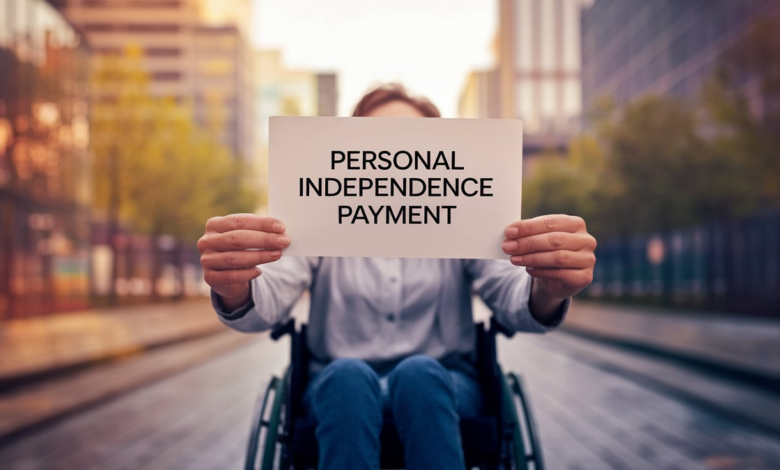Why PIP Payments Could Be Replaced with Vouchers and What It Means for You

The idea of PIP payments being replaced with vouchers has recently sparked heated discussions. Many people are worried that the current system, where individuals receive cash to help with daily living costs, may be replaced by a voucher system. This change could have a significant impact on those who rely on Personal Independence Payments (PIP) to cover necessary expenses like mobility aids, therapy, and daily essentials. In this blog post, we will explore what replacing PIP payments with vouchers could mean for people living with disabilities and what the government has to say about these proposals.
PIP payments replaced with vouchers could limit how individuals with disabilities use their benefits. Currently, cash payments allow people to decide how to spend money according to their own needs and priorities. However, a voucher system could restrict these choices, as the money might only be used for specific items or services. Critics argue that this change would reduce independence and dignity for people who rely on these payments. Instead of having the freedom to choose, they might only be able to access products from a limited selection or service providers. The idea has already raised concerns among disabled communities and advocacy groups who believe that such a system would fail to meet the unique needs of individuals. This debate is far from over, and it remains to be seen what the government decides.
How PIP Payments Replaced with Vouchers Could Impact Disability Support
If PIP payments were replaced with vouchers, it could dramatically change how people with disabilities access support. Currently, PIP payments offer flexibility, allowing individuals to choose what best meets their needs, whether that’s mobility aids, therapy, or daily living expenses. However, vouchers would likely restrict this freedom by limiting what people can buy and where. For example, individuals might only be able to use the vouchers for specific services or products from a limited range of providers. This change could lead to a loss of independence, as people would no longer have the freedom to manage their finances as they see fit, potentially making it harder for them to navigate their lives and access the support they need.
Why Replacing PIP Payments with Vouchers Might Not Be the Best Solution
Replacing PIP payments with vouchers might not be the best solution for a variety of reasons. First, vouchers could limit choice and autonomy for individuals with disabilities, as they wouldn’t be able to use their benefits on a broad range of services or products. The current cash system provides people with the flexibility to make decisions that suit their specific needs, whether it’s for medical treatments, mobility aids, or day-to-day living. Restricting this flexibility through vouchers could make it more challenging for individuals to cover their diverse needs and could even create more obstacles for those who are already struggling. Additionally, it might lead to a feeling of reduced dignity, as people would no longer have full control over their finances.
What Happens if PIP Payments Are Replaced with Vouchers?
If PIP payments were replaced with vouchers, it could create several challenges for those who rely on the payments. One of the biggest concerns is that individuals would lose the flexibility that cash payments currently offer. Cash allows people to decide where and how to spend it, based on their individual needs. Vouchers, on the other hand, might only be used for specific products or services, which could limit choice and independence. This could be especially problematic for people with complex needs who require a variety of services. Furthermore, the voucher system might not be able to accommodate all the different ways that people with disabilities manage their daily lives, which could lead to frustration and additional barriers.
Could Replacing PIP Payments with Vouchers Limit Disability Support?
Replacing PIP payments with vouchers could significantly limit disability support. Currently, PIP payments give individuals the ability to choose how they spend their funds, allowing for a personalized approach to meeting their needs. However, a voucher system would likely restrict how these payments are used, with vouchers only being applicable for certain products or services. This limitation could make it harder for people with disabilities to access the range of support they require. For example, someone might need a specific mobility aid or therapy session that isn’t covered by the voucher system. This restriction could lead to feelings of frustration and a lack of control over one’s own life, making it harder to live with a disability.
The Pros and Cons of Replacing PIP Payments with Vouchers
There are both pros and cons to replacing PIP payments with vouchers. On the positive side, vouchers could ensure that people with disabilities spend their benefits on essential goods and services, such as mobility aids or healthcare. This could provide a more direct way of ensuring that the money is used for its intended purpose. However, there are significant downsides as well. A voucher system could limit the flexibility that cash payments provide, restricting choice and independence. People may not be able to use their benefits for other critical needs, such as food or housing, which could make managing their finances even more challenging. Overall, while vouchers might offer some benefits, they could ultimately create more problems for people who already face numerous challenges.
Exploring the Controversy of PIP Payments Replaced with Vouchers
The idea of PIP payments being replaced with vouchers has sparked a lot of controversy. Many people with disabilities feel that this proposal would take away their independence, as it limits their ability to make choices about how to spend their benefits. Currently, PIP payments allow individuals to decide where their money goes, based on their unique needs. However, vouchers would restrict this freedom by dictating what they can purchase. This change could feel patronizing to people who already face challenges in their daily lives, as it removes their ability to control their finances and decisions. Additionally, there is concern that a voucher system might not adequately cover all the varied needs of disabled people, leading to frustration and inequality.
Why Disabled People Fear PIP Payments Will Be Replaced with Vouchers
Disabled people fear that PIP payments will be replaced with vouchers because it could limit their autonomy and create new barriers. For many, the ability to choose how to spend their PIP payments is vital for maintaining independence and quality of life. If vouchers were introduced, it could force people to only use their benefits for specific services or products, which might not always align with their needs. For example, someone might require a specific type of equipment or service that isn’t covered by the voucher system. This would force them to either go without or face additional financial strain. The fear is that this change would undermine their independence, making it harder to live a fulfilling life.
The Government’s Plan: Replacing PIP Payments with Vouchers—What Does It Mean?
The government’s plan to potentially replace PIP payments with vouchers is still under discussion, but it raises serious questions about the future of disability support. If the government decides to move forward with this proposal, it could affect how people with disabilities manage their daily lives. The shift from cash payments to vouchers might seem like a way to ensure funds are used for essential services, but it could also limit the ability of individuals to make choices based on their needs. The government has promised to focus support on those who need it most, but the details of how the voucher system would work remain unclear. It’s important to carefully consider how such changes could impact disabled people’s ability to live independently and with dignity.
Should PIP Payments Be Replaced with Vouchers? Here’s What You Need to Know
The question of whether PIP payments should be replaced with vouchers is a difficult one. On one hand, vouchers could provide a way to ensure that the benefits are spent on essential goods and services. On the other hand, this would limit the flexibility that cash payments currently offer, making it harder for people with disabilities to access a full range of support. While vouchers might work for some people, they could create barriers for others who have more complex needs. If this change were implemented, it would be important for the government to ensure that the voucher system is flexible enough to meet the diverse needs of people with disabilities without restricting their independence.
How a Voucher System for PIP Could Affect Your Independence and Finances
A voucher system for PIP could have a significant impact on both your independence and finances. Currently, cash payments allow individuals to manage their funds as they see fit, providing flexibility to purchase what they need. If vouchers replaced cash, it could limit how people with disabilities spend their benefits, forcing them to use it only on specific products or services. This could reduce the sense of control that individuals have over their lives, especially if the voucher system does not cover all their needs. Additionally, people might find themselves financially strained if the voucher system doesn’t cover essential services or products that they rely on. This change could make managing life with a disability even more difficult.
Conclusion
In conclusion, replacing PIP payments with vouchers could change how people with disabilities manage their support. While vouchers might ensure the money goes toward specific services, they could limit people’s choices and independence. Many people feel that having cash payments gives them the freedom to decide what they need the most, and this change could make it harder for them to live their lives the way they want.
It’s important to think carefully about how any changes to the PIP system will affect people with disabilities. The government needs to ensure that any new system gives everyone the support they need without taking away their control. Everyone deserves the right to live independently, and any change should focus on making life easier for them, not harder.
FAQs
Q: What is PIP?
A: PIP stands for Personal Independence Payment, a benefit for people with disabilities to help cover extra living costs.
Q: Why is the government considering replacing PIP payments with vouchers?
A: The government is looking at ways to cut costs and make sure benefits are used for essential services, like equipment and care.
Q: How would a voucher system affect people with disabilities?
A: It could limit the freedom people have in choosing what they need, making it harder to manage their personal finances and needs.
Q: Would people still receive the same amount of money if PIP payments were replaced with vouchers?
A: The amount might stay the same, but how the money is spent would change, as vouchers would only be usable for specific services or products.
Q: What do people with disabilities think about replacing PIP payments with vouchers?
A: Many people are concerned because vouchers could take away their independence and make it harder to get the support they need.




